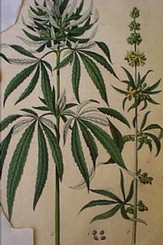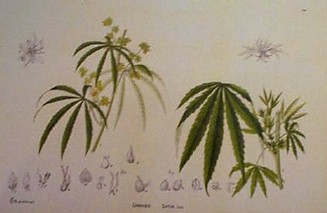|
|
|

アメリカのヘンプ農業の歴史

This
is a picture of the Mayflower II built in 1957 and equipped with hempen cordage. (National Geographics) Early Settlers from Europe brought hempseed to the Americas. England wanted another colony with the ability to grow hemp for their massive navy, but farmers grew the more profitable crop -tobacco. Much of the hemp grown was used locally as homespun fabric and rope.

George Washington was great in so many ways, it has been forgotten that he was a hemp farmer and advocate of hemp industry. He said, "Make the most of the hempseed and sow it everywhere.
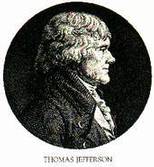
|
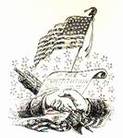
|
|
U.S. President Thomas Jefferson was a hemp farmer.
|
It is ironic that the prohibited hemp
plant produced the material for both the early American flags
and the paper upon which our Supreme Law is written.
|
Book of the World." - 1853. Hemp botanical drawing hand painted. The female plant is on the left, male on the right, hemp seeds below. Hemp was legal for all uses in 1853. Right: This Hemp Museum print of a hand-painted botanical illustration was made when hemp was a free plant.
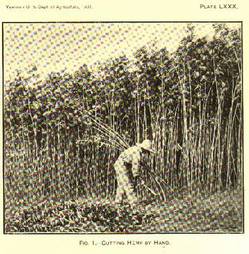
|
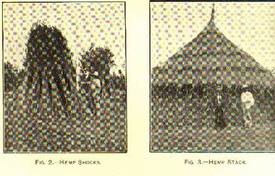
|
|
YEARBOOK: U.S. DEPARTMENT OF
AGRICULTURE: 1913. Fig. 1, Cutting hemp by hand.
|
Hemp Shocks and Hemp Stack from the above YEARBOOK, 1913.
|

|

|
|
Hemp photo from "Luther
Burbank: His Methods and Discoveries, Practical
Applications," 1914, p.117. "Hemp plants:
Hemp is grown in America chiefly for its coarse fiber, used in
making ropes, cordage, and warp for carpet. Its seed is
little utilized, although it makes a valuable oil.
|
In the year 2001, we need hemp as
an energy crop, and lots more, food, paper, textiles, plastics,
and medicine
|

|
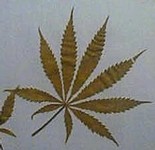
|
|
In 1938, it was estimated by Popular Mechanic Magazine that there were 25,000 viable commercial products possible from the hemp plant.
|
The hemp leaf was given a bad name
by the U.S. Government in the Marijuana Tax Act of 1937, which
turned into a full prohibition.
|
At present there are comparatively few plants
and a limited number of trees that will yield cellulose economically
for quantity production. The plants are those containing vegetable
fibers in the form of cotton, flax, hemp, jute, sugar cane,
straw, espartro, and corn stalks. Of the trees there are spruce,
balsam, fir, jack pine, hemlock, southern pine, poplar, and
cottonwood.- Hunter.

|
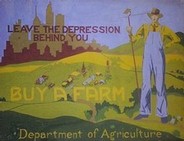
|
|
The Hemp Industries Association, is a group
of business people interested in restoring hemp to the U.S. "free
market." There is no free market without hemp. Our neighbor
Canada has now grown hemp for several years, and England for almost
ten years.
|
Buy a hemp farm. More than
ever we need farmers to experiment with energy production, paper
production, and resource development with hemp.
|
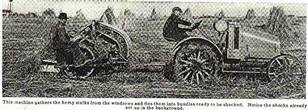
|
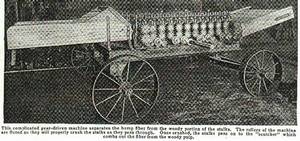
|
|
Bundling and tying hemp to be
shocked. Note the shocks in background.
|
This 'new' machine was designed to
separate the fiber from the wood and do for hemp what the cotton
gin did for cotton.
|
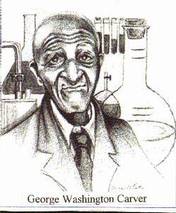
George Washington Carver was the greatest agricultural researcher in American history. He showed you could make almost anything from farm products and agricultural waste. Carver developed hundreds of products out of the peanut. Henry Ford used his ideas in building his early Ford cars.
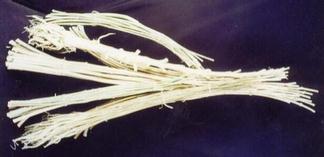
|

|
|
Hemp Museum dried hemp stalks, wild and domestic.
|
Given lots of room, hemp plant branches profusely for seed or medicine.
|
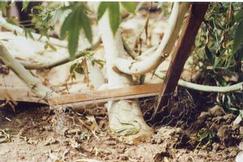
|

|
|
How big does hemp grow in one
season? This medical - seed plant has a three inch
diameter stalk. Is it any wonder it skyrockets to 15 feet
in a short season of growth when planted close together?
|
Tap roots of wild hemp grown in
Nebraska. Great to hold the topsoil and add humus to the
soil.
|
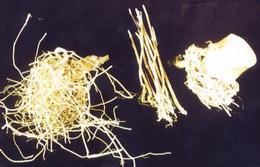
|
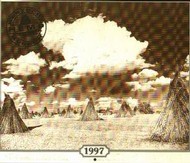
|
|
Spreading roots of a medicinal -
seed plant with lots of room between plants.
|
Calendar cover for the Kentucky Hemp Museum, showing historical photo of shocked bundles of hemp (shocks), drying in the field. 1997 calendar.
|

|
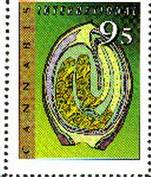
|
|
Hemp seed. It is 30% oil by weight, has a complete protein of very digestible quality.
|
International Hemp Seed Stamp from Canada. CANNABIS, INTERNATIONAL.
|
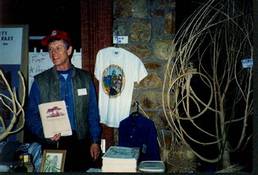
The Curator at a California Certified Organic Farmers meeting with the beginnings of the Museum in 1991. Flanked by hemp plants. He was a member of CCOF for 13 years.
|
|


 館長から皆さまへ
館長から皆さまへ ヘンプの歴史
ヘンプの歴史
 ヘンプと農業
ヘンプと農業 ヘンプと農業
ヘンプと農業 ヘンプ農業の始まり
ヘンプ農業の始まり アメリカのヘンプ農業の歴史
アメリカのヘンプ農業の歴史 ヘンプで勝利を
ヘンプで勝利を カリフォルニア農業史
カリフォルニア農業史 ヘンプの農法
ヘンプの農法 ヘンプ農業の規制
ヘンプ農業の規制 書簡
書簡
 ヘンプの医療と健康
ヘンプの医療と健康 ヘンプ食品
ヘンプ食品 ヘンプ織物
ヘンプ織物 ヘンプ縄と糸
ヘンプ縄と糸 ヘンプパルプ紙
ヘンプパルプ紙 ヘンプ建材
ヘンプ建材 ヘンプ燃料
ヘンプ燃料 ヘンプ原料
ヘンプ原料 ヘンプ溶剤
ヘンプ溶剤 ヘンプ・プラスチック
ヘンプ・プラスチック ヘンプと環境
ヘンプと環境 ヘンプと娯楽と精神世界
ヘンプと娯楽と精神世界 ヘンプと法律
ヘンプと法律 ヘンプと政治
ヘンプと政治 ヘンプ貢献者
ヘンプ貢献者 ミュージアム図書館
ミュージアム図書館 Topに戻る
Topに戻る





